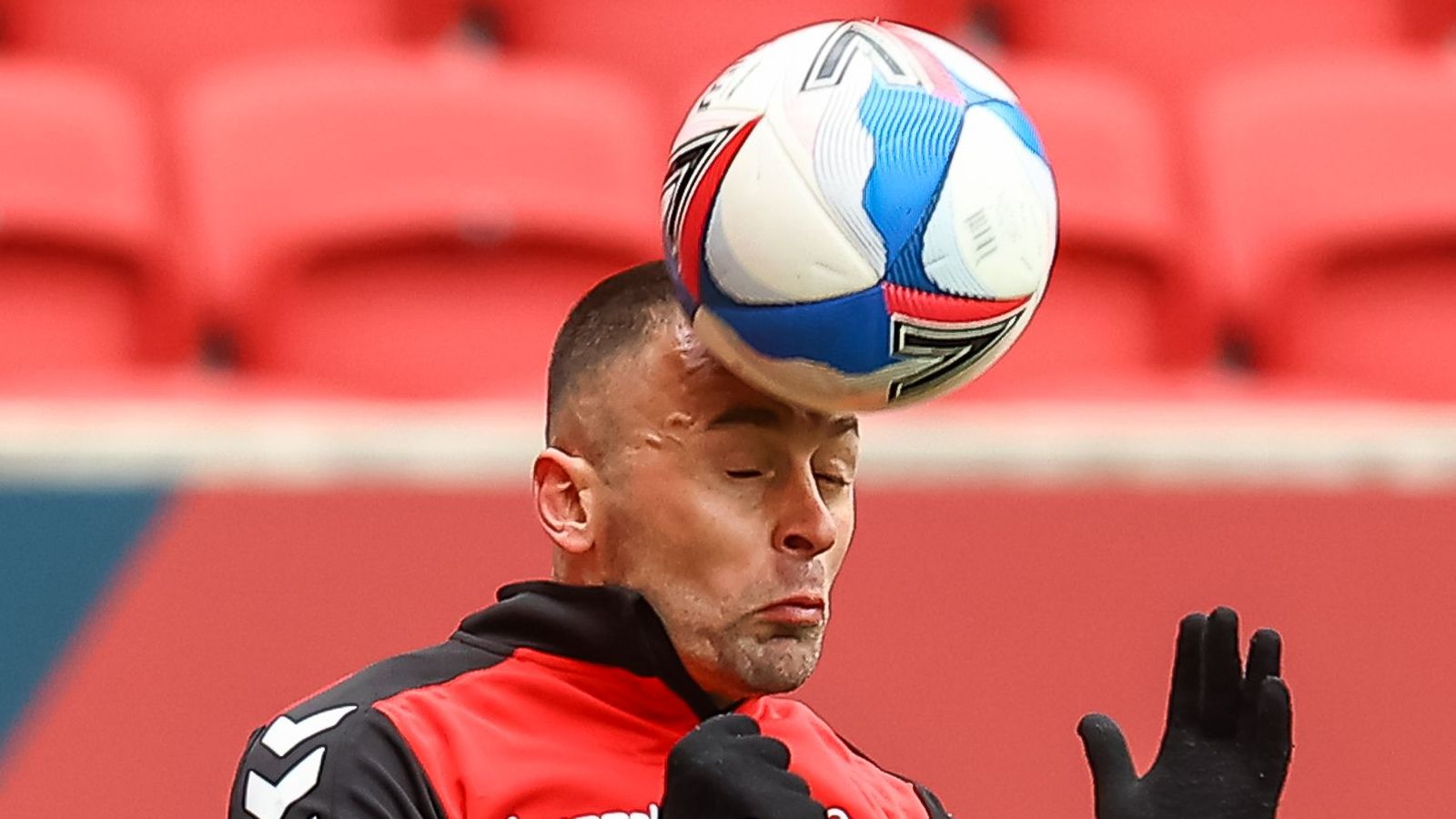The amount of heading that players will do in training across the adult game in English football is to be severely restricted from next season because of welfare concerns, under plans agreed by the game’s main governing bodies.
Clubs in the Premier League, EFL, Barclays Women’s Super League, FA Women’s Championship, National League, the Women’s Football Pyramid Tiers 3 and below, all grassroots football as well as the England national teams will receive advice on how to minimise the risk of brain injuries.
The plan, agreed by the Football Association, Premier League, EFL, Professional Footballers Association and League Managers Association, is centred on how heading is performed in training.
It will not affect the rules of the game.
Under the scheme, professional clubs will be directed to limit “high force” headers, which follow a long pass of more than 35 metres (115 feet) or from crosses, corners and free-kicks to 10 per training week.
Clubs will be sent tips on coaching practices to help develop heading technique using a lower force, such as throwing a ball to a header instead of kicking and players heading from a standing position instead of a running jump.
Specific player profiles which will help tailor each individual’s training needs are also recommended.
An advisory panel will also be set up to explore strength and conditioning techniques for the neck and torso, which have an impact on the force of heading.
The guidance for amateur clubs is for heading practice to be limited to one session per week and no more than 10 headers per session and players should be responsible for their own monitoring of their output.
Guidelines for youth football were announced in February 2020 and remain in place.
FA chief executive Mark Bullingham said: “These measures have been developed following studies with coaches and medics and represent a cautious approach whilst we learn more.
“We are committed to further medical research to gain an understanding of any risks within football, in the meantime this reduces a potential risk factor.
“Overall it is important to remember that the overwhelming medical evidence is that football and other sports have positive impacts on both mental and physical health.”
Regular updates will be provided by the governing bodies throughout the season as part of a formal review of the guidance in June 2022.
The measures follow increasing concern over the impact of heading and its link to dementia.
Last week, MPs called on ministers to introduce a UK-wide minimum concussion protocol by July next year.
It comes almost 20 years after former England striker Jeff Astle died at the age of 59, having developed dementia.
Lenny Woodward, a former rugby union and rugby league player for Wales, suffered multiple concussions during his career and was diagnosed with dementia at the age of 45.
A landmark study of 7,500 former professional footballers published two years ago found they were three-and-a-half times more likely to die from dementia than non-players in the same age range.






















